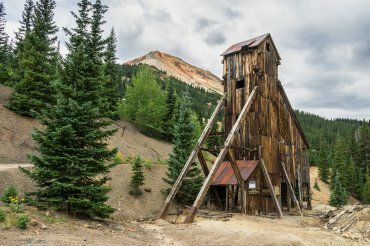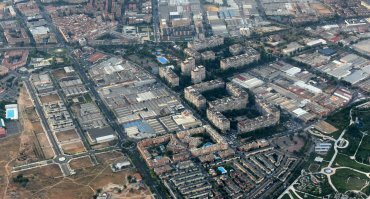Importance of Infrastructures
Miscellanea / / August 08, 2023
 A suspension bridge, a railway network or a city's sewage system are different types of infrastructure that improve the quality of life of citizens.
A suspension bridge, a railway network or a city's sewage system are different types of infrastructure that improve the quality of life of citizens.
What do the different infrastructures contribute to the economy of a country?
Imagine a country without airports, without railway lines, without river or sea ports and with only one highway to access it. Such precarious infrastructures will have consequences for trade, tourism and the mobility of its inhabitants. With this simple example, a fact is revealed: the infrastructures of a nation are essential in all areas of the economy.
If someone wants to send a goods 1000 km away, this action may be related to various infrastructures: a port or an airport, a free zone, a polygon, a highway, etc.
If a multinational company decides to establish itself in a country, one of the aspects that it must analyze is precisely what kind of infrastructure there is and everything related to it.
Infrastructures facilitate work and commercial activity. Thus, thanks to them, the tasks of suppliers and distributors are much easier and customers also benefit from many ways (for example, if a product is purchased online, it will reach the buyer's home sooner if it is surrounded by good infrastructures).
In short, infrastructures are relevant because they limit or enhance personal or business development options.
The energy, water and services we use depend on infrastructures
Behind the action of opening a simple tap or turning on a light switch there is always a complex infrastructure. If we take the water that reaches our homes as a reference, the infrastructures involved are the following: water reservoirs, sewage system, treatment plants, pumping systems to filter the water etc The drinking water that we need requires collection, storage, control and distribution.

The control of water in the ancient Egyptian civilization
The control of the water of the Nile River allowed the development of the civilization of the pharaohs. Despite being in the middle of the desert, the territory of Egypt had a agriculture advanced and fertile soil because the Egyptians knew how to divert water using dams and canals.
The construction of canals promoted agriculture, but also fishing, trade and the dissemination of culture (the so-called Canal de los Pharaohs was a route of communication that linked the Red Sea and the Mediterranean Sea).
Images: Fotolia. Laurens – Celeste Clochard
write a comment
Contribute with your comment to add value, correct or debate the topic.Privacy: a) your data will not be shared with anyone; b) your email will not be published; c) to avoid misuse, all messages are moderated.



